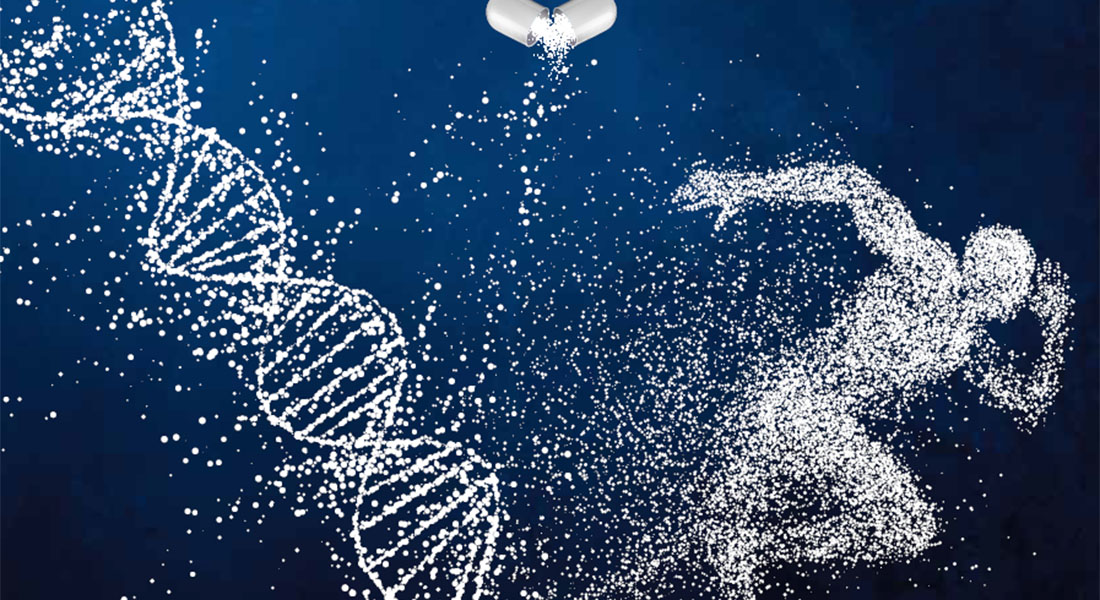PhD defence: Importance of angiotensin-converting enzyme activity for adaptation to exercise training

Tórur Sjúrðarson
PhD thesis
Human exercise capacity is a strong prognostic marker of cardiac events and all-cause mortality in healthy and diseased individuals. Regular endurance training improves exercise capacity, but the extent of improvement varies between individuals. Thus, it is highly important to investigate why humans differ in their adaptability to exercise training. It has been suggested that the well-described angiotensin-converting enzyme (ACE) insertion/deletion (I/D) polymorphism affects the adaptation to exercise training by determining the ACE activity phenotype. Importantly, the ACE phenotype can be manipulated pharmacologically by ACE inhibitors. The present thesis aimed to investigate the importance of ACE activity for exercise training adaptability in healthy individuals and patients with coronary artery disease.
Through exercise training interventions in healthy individuals and patients with coronary artery disease, and by obtaining a high number of physiological measurements before and after the interventions, the impact of the ACE I/D genotype for adaptation to exercise training was evaluated by determining the ACE genotype in all participants. In addition, by randomizing the healthy individuals to exercise training combined with ACE inhibitor treatment or exercise training combined with placebo, the impact of pharmacological ACE inhibition on multiple training-sensitive variables was established.
The results from the present thesis demonstrated that the magnitude of exercise-training-induced improvements in exercise capacity was independent of the ACE genotype in healthy individuals and patients with coronary artery disease. However, augmented lean body mass and left atrial volume expansion induced by exercise training in healthy individuals were abolished by concomitant ACE inhibition. Furthermore, ACE inhibitors appeared to reduce red blood cell volume but not exercise capacity gains in healthy individuals. Future studies should establish whether these findings can be replicated in relevant patient groups and whether treatment periodization can augment the outcome of exercise training in patient groups commonly treated with ACE inhibitors.
Download Table of contents; List of papers; Abstract; Dansk resumé; Føroyskt úrtak.
2023, 148 pages.
Time
31 March 2023, 14:00 Danish time
Venue
Kongshøll, Vestara bryggja, 100 Torshavn, Faroe Islands and online
YouTube link for defence: https://youtube.com/live/KVaktLz3Hpw?feature=share
Opponents
Professor Lars Nybo (chair), Department of Nutrition, Exercise and Sports, University of Copenhagen, Denmark.
Professor Truls Raastad, Department of Physical Performance, Norwegian School of Sport Sciences, Oslo, Norway.
Chief physician Hanne Kruuse Rasmusen, Department of Cardiology, Copenhagen University Hospital of Bispebjerg, Copenhagen, Denmark.
Supervisor
Professor Nikolai Baastrup Nordsborg, Department of Nutrition, Exercise and Sports, University of Copenhagen, Denmark.
Co supervisor
Professor Magni Mohr, Centre of Health Science, Faculty of Health, University of the Faroe Islands, Tórshavn, Faroe Islands & Department of Sports Science and Clinical Biomechanics, Sport and Health Sciences Cluster (SHSC), University of Southern Denmark, Odense, Denmark.
The thesis is available for inspection at the library, Nørre Allé 51, DK-2200 Copenhagen.
